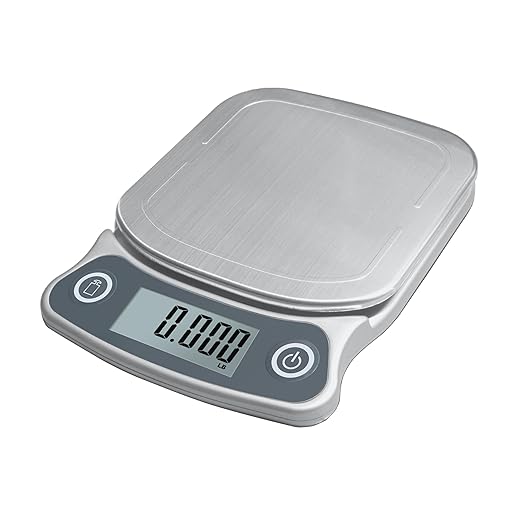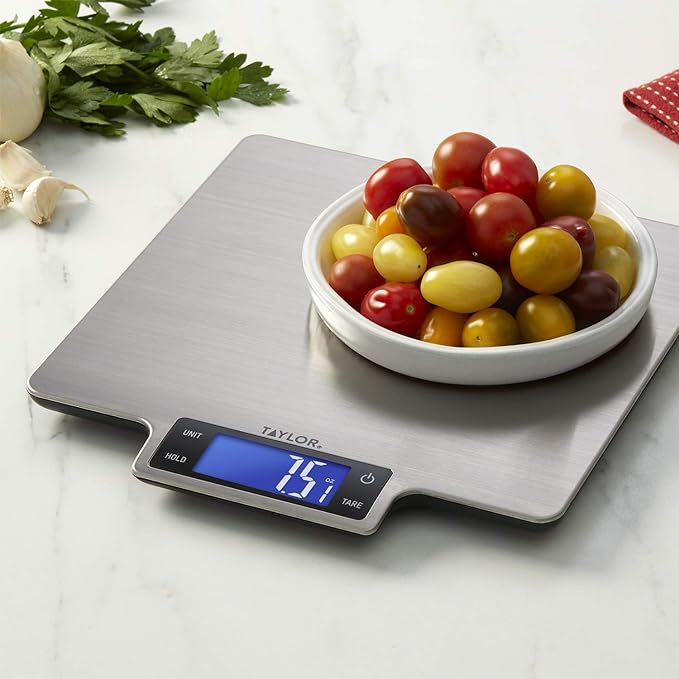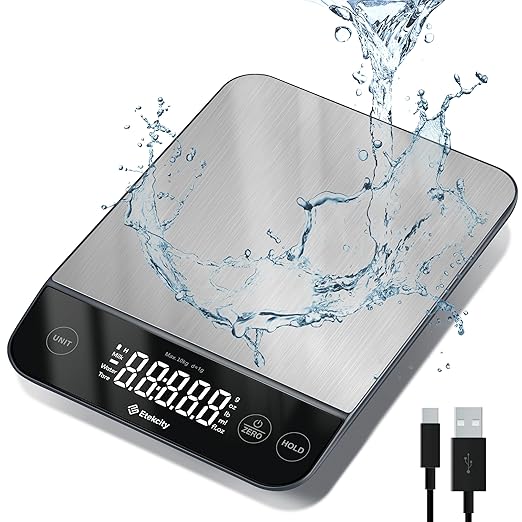Kitchen Scales
Elevate Your Culinary Skills
A kitchen scale is one of the most underrated tools in the modern kitchen, but it can be the key to mastering accurate recipes, healthier portion sizes, and precise ingredient measurements. Whether you’re an experienced home cook or a beginner experimenting with baking, a kitchen scale can elevate your culinary skills to a whole new level.
While many recipes rely on traditional measuring cups or spoons, a kitchen scale provides a more accurate and consistent way to measure ingredients. A scale helps you avoid the common discrepancies that arise when using volume measurements, particularly in baking, where precision is crucial. Kitchen scales are useful for portion control, making it easy to stick to diet plans or meal prep with precision. For families or individuals following a specific nutritional plan, weighing food allows for better tracking of calorie and nutrient intake, which can be a game-changer for health-conscious people.
-
Eat Smart Precision Elite Kitchen Scale
The Eat Smart ESKS-10 Precision Elite Digital Kitchen Scale offers a premium kitchen experience with its precise measurements, modern design.
-
Taylor Ultra-Precise Kitchen Scale
The Taylor 22lb Ultra-Precise Digital Stainless Steel Kitchen Scale is your go-to tool for precision cooking and baking in the home.
-
Etekcity Food Kitchen Scale
The Etekcity Food Kitchen Scale will make your kitchen tasks easier and more efficient. Whether you’re looking to lose weight or bake like a pro.
Types of Kitchen Scales
Analog Kitchen Scales
How They Work
Analog or mechanical kitchen scales operate with a spring mechanism that measures the weight and displays it on a dial.
Pros
They do not require batteries, are often more affordable, and have a vintage aesthetic that appeals to some homeowners.
Cons
These scales are less precise compared to digital versions and may need recalibration over time.
Digital Kitchen Scales
How They Work
Digital scales use sensors to measure weight and display it on an electronic screen, offering precision down to the gram or ounce.
Pros
Digital kitchen scales are more precise, easy to read, and often come with additional features like tare functions (subtracting the weight of the container) and unit conversions (from grams to ounces, for example).
Cons
They require batteries and are generally more expensive than analog scales.
Key Features to Look For
When shopping for a kitchen scale for your home, consider the following features:
- Capacity: Make sure the scale can handle the weight of the ingredients you commonly measure. Most kitchen scales offer a capacity between 5 to 10 pounds, which is sufficient for most home cooking needs.
- Accuracy: Opt for a digital scale if precision is your priority. Look for scales with at least 1-gram or 0.05-ounce increments for the best results.
- Tare Function: This feature allows you to zero out the weight of a bowl or container, making it easier to measure multiple ingredients in the same container without doing complex math.
- Display: A large, clear display is important, especially if you’re working in a busy or dimly lit kitchen.
- Portability and Storage: Look for compact designs or models that are easy to store when not in use. Some digital scales come with flat or foldable designs for easy kitchen organization.
Uses for Kitchen Scales
- Baking: Precision is crucial in baking. A kitchen scale allows you to measure ingredients like flour and sugar by weight rather than volume, ensuring your baked goods turn out just right every time.
- Meal Prep: Whether you’re counting calories or following a specific diet, using a kitchen scale can help ensure accurate portion control.
- Cooking: For those trying new recipes that require exact ingredient ratios, a kitchen scale simplifies the measuring process.
- DIY Projects: Beyond cooking, many people use kitchen scales for other household activities, such as measuring soap-making ingredients or crafting materials.
Efficiency in the Kitchen
A kitchen scale is an invaluable tool for any home cook who values accuracy, consistency, and efficiency in the kitchen. Whether you prefer a nostalgic analog scale or a high-tech digital one, having a reliable kitchen scale can transform how you approach your recipes and dietary habits. Investing in the right kitchen scale for your home will save time, reduce guesswork, and ultimately lead to better results, whether you’re baking, meal prepping, or following a new cooking regimen.


